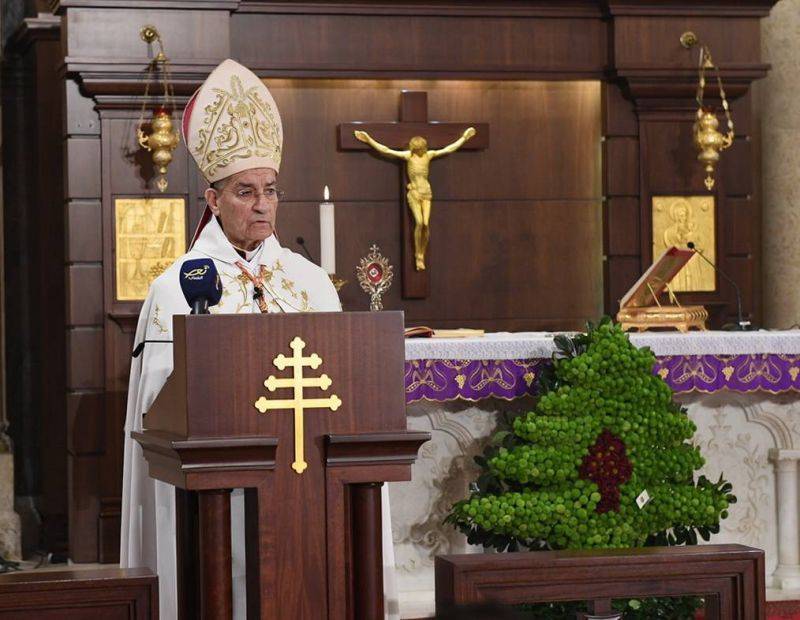If the concept of neutrality is not new in the history of Lebanon, it was recently brought back to the fore by the Maronite Patriarch Béchara Raï. This notion was at the heart of his speech on February 27 in Bkerké, in which the prelate declared: “Failure to respect neutrality is the sole cause of all the crises and wars that Lebanon has gone through. Each time the country has followed a regional or international axis, the people have divided and wars have broken out. But what is this concept actually called? What does it imply in terms of foreign policy in a country shaken throughout its modern history by regional conflicts? Back to the challenges of a vision.
The concept of neutrality in international relations
Principle of international law deriving from the Hague Conventions of 1899 and 1907, jurists agree in defining neutrality as a specific legal regime which may arise from the unilateral decision of a State or be the result of an international convention which accepts the neutrality of a given country. For example, Austria, which in 1955 negotiated the withdrawal of Soviet forces from its territory by including its “eternal neutrality” in its Constitution, or Switzerland, which achieved this status by agreement of the major European powers at the time. of the Treaty of Paris in 1815. This redrawn the borders of Europe in the aftermath of Napoleon’s defeat at Waterloo. Neutrality means non-interference in conflicts, the absence of material assistance and supplies, the refusal to engage troops in armed clashes, the closure of its naval and air space to any military apparatus while retaining the right to trade freely with the parties.
Neutrality should not be confused with non-alignment which represents a country’s refusal to join a particular military alliance, nor with isolationism which reflects a country’s desire to stay away from international affairs. focusing on domestic politics. Neutrality must also be differentiated from the concept of antimilitarism, as applied in certain countries, including Costa Rica, which no longer has an army since 1948. For the Swiss Confederation, neutrality does not rhyme with the absence of military force. . Quite the contrary. Switzerland is one of the most militarized countries in the world and conscription is still compulsory.
Positive neutrality
The concepts of “active neutrality” and “positive neutrality” come up regularly in studies on the different approaches linked to this principle. Beyond the strict application of their neutrality, some countries even make it a paradigm around which their diplomatic action is built and promote these values internationally to act as mediators. Switzerland, for example, is actively promoting this neutrality and is participating in several operations. Swiss observers are for example present at the border between the two Koreas.
It is to this active neutrality that Patriarch Raï referred in his speech of August 17, 2020. The prelate imagines the country of the Cedar as a peaceful promoter of good intercommunity understanding and interreligious dialogue. The Sultanate of Oman is perhaps the only country in the region to pursue a policy of neutrality vis-à-vis its Saudi and Iranian neighbors. Oman has proven to be an essential mediator in many issues, including Iranian nuclear power.
Neutrality in the history of Lebanon
Historians generally consider the concept to be as old as Lebanon. The national pact of 1943, without evoking neutrality, clearly put forward the notion of independence, in the sense of a non-alignment, “neither on the East nor on the West”. This position was very quickly weakened by the creation of Israel in 1948, which Lebanon opposed like the rest of the Arab countries. Then by the Suez crisis in 1956, during which President Camille Chamoun sided with the French and the British against Nasser. President Fouad Chéhab tried during his mandate (1958-1964) to give substance to this principle of neutrality, at a time when Lebanon was able to benefit from a certain compromise between the United States and Nasser’s Egypt. “The great rule that must govern Lebanese foreign policy is that of non-alignment. We have neither the right nor, moreover, the power to pronounce options or to make commitments which, by risking the shattering of Lebanese unity, serve the very cause that we would claim to serve ”, wrote Georges at the time Naccache, founder of L’Orient. The 1967 war, then above all the establishment of the Palestinians in Lebanon and the civil war that began in 1975, however, shattered these principles.
Baabda Declaration
The Baabda declaration, an initiative of President Michel Sleiman in 2012, advocates distancing from regional conflicts in its article 12: “Keep Lebanon away from conflicts and regional and international axes, and spare it the negative consequences of regional crises, in order to preserve its best interests, within the framework of respect for international resolutions, Arab unanimity and the just Palestinian cause. This document will however remain a dead letter because of the interference of the Lebanese parties, in particular Hezbollah, in the Syrian conflict. Of a political nature and not binding, this intention was not followed by the passage of a text of law to reaffirm this principle and make it obligatory.
Limit of the concept in the current context
The concept of neutrality seems to be doomed, at least for the moment, to remain a utopia given the local and regional context. Several Lebanese political parties currently maintain close links with foreign powers, sometimes even organic. This is not new, even if the case of Hezbollah is nonetheless special. Historically, local parties have often relied on a foreign sponsor both politically and financially. The politico-confessional system of Lebanon, a small country with multiple allegiances, facilitates foreign interference on the basis of an alleged common identity to be defended.
The principle of neutrality, even more if it is positive, supposes that the actors agree upstream on a certain vision of what Lebanese foreign policy should be, while the region has been shaken for years by the war on the axes. The division of local parties in relation to the Syrian war highlights the limits of the approach. The question of the policy to adopt in relation to Israel also arises, while the two countries are still “at war”, even if the armistice agreement they signed in 1949 has never been officially denounced. So much so that neutrality can be a principle or an objective today, but does not seem able to be still a policy.
–
If the concept of neutrality is not new in the history of Lebanon, it was recently brought back to the fore by the Maronite Patriarch Béchara Raï. This notion was at the heart of his speech on February 27 in Bkerké, in which the prelate declared: “Failure to respect neutrality is the sole cause of all the crises and wars that the …


